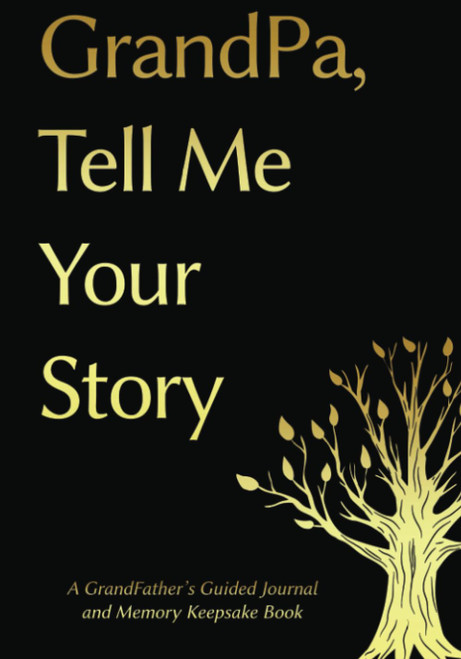Fred Kahn was born in Wiesbaden, Germany shortly before Hitler came to power. His parents left Germany to escape the Nazis but felt traveling with a newborn would have put them at risk. They left their baby with his childless Aunt Rosa and Uncle Siegfried. They presumed that Hitler and the Nazis would not stay in power long. This was not the case. His aunt and uncle became like parents and he lived with them for six years. A synagogue which had been built in the 1800s was next to my aunt and uncles house in Wehen. My uncle was responsible for it. He and his cousin transported pine boxes in a horse-drawn carriage. I was told they contained the shuls [synagogues] religious relics. I watched as they buried the boxes in a nearby landfill. The synagogue was burnt down six weeks later, on Kristallnacht. By premonition, it seems, the relics had escaped the sacrilegious desecration by fire. When Fred's parents heard the news that Germany was going to war, they called Siegfried with this message: Get the boy out of Germany. The next night Freds uncle woke six-year-old Fred and told him to put on his best suit. A brave Christian woman named Maria Goar would take him to his parents in Belgium. At that time, there was a no mans land between Germany and Belgium. Freds father stood on the Belgian side, imploring the guards to let the young boy cross, saying, Cest mon fils! (French for Thats my son!). Freddy was finally permitted to cross the border to a father he didnt know. After the Germans occupied Belgium in May 1940, the Kahn family went into hiding to avoid being sent to a concentration camp. Four years later, Uncle Siegfried and Aunt Rosa were sent to an extermination camp. Rosa wrote Fred a farewell postcard the night before she left. The Kahns used the old identity papers of a Catholic family so Fred began to use a typical gentile last name Lejeune. Once Belgium was liberated, the family returned to Germany. I ran into my old friends, kids on the street, Fred recalls, and they couldnt believe I was still alive. His aunt and uncle were not so lucky. The only family I knew until I was reunited with my own parents were killed in the Sobibor extermination camp in June 1942. Maria Goar, the Christian friend of his aunt and uncle who took him to meet his father, sent Siegfrieds pocket watch to Fred shortly after the war. He still treasures this watch today. In 1952, at age nineteen, Fred immigrated to the United States. He settled in Baltimore, Maryland. Fred earned a Bachelor of Arts with honors from the University of Maryland. In 1956, while vice president of the Universitys International Club, Fred suggested the idea of presidential debates. He enlisted the support of former first lady Eleanor Roosevelt. The press heralded his proposal, which laid the roots for the Nixon-Kennedy presidential debate, televised in 1960. Fred worked as a political economist for the U.S. Department of Labor under six presidents: Johnson, Nixon, Ford, Carter, Reagan, and Bush. He was awarded a distinguished career service award by the U.S. Secretary of Labor and retired in 1992 after 30 years of a long and fruitful career.
The Story of Fred A. Kahn: (a.k.a. Freddy Lejeune) (A BOOK by ME)
A Book by Me
MSRP:
Was:
Now:
$29.28 - $34.68
(You save
)
(No reviews yet)
Write a Review

Write a Review

A Book by Me
The Story of Fred A. Kahn: (a.k.a. Freddy Lejeune) (A BOOK by ME)
- SKU:
- UPC:
- 9781514298435
- Maximum Purchase:
- 3 units
- Binding:
- Paperback
- Publication Date:
- 2014-10-17
- Author:
- A Book by Me;Marcus Yarboro
- Language:
- english

The Fred Book
MSRP:
Was:
Now:
$12.45 - $32.66

Brand: Overlook Juvenile
Freddy and the Flying Saucer Plans (Freddy Books)
MSRP:
Was:
Now:
$44.93 - $300.00

Bowen Fred
Go for the Goal! (Fred Bowen Sports Stories) (Fred Bowen Sports Story)
MSRP:
Was:
Now:
$14.21 - $22.08

Brand: Peachtree Publishers
Perfect Game (Fred Bowen Sports Story Series) (Fred Bowen Sports Stories)
MSRP:
Was:
Now:
$18.02 - $22.01

Grandpa, Tell Me Your Story: A GrandFather's Guided Journal and Memory Keepsake Book (Tell Me Your Story Series Book)
MSRP:
Was:
Now:
$13.14 - $14.79

Scholastic
The Freddy Files: Updated Edition: An AFK Book (Five Nights At Freddy's)
MSRP:
Was:
Now:
$12.30 - $21.49
!



